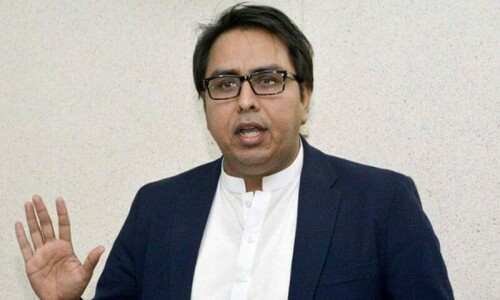LAHORE, Jan 13: Renowned author and expert on Afghan affairs Ahmed Rashid says Pakistan should whole-heartedly pursue the counter-terrorism struggle and should not feel reluctant at all to extend military operation against militants to North Waziristan.
“As a coordinated and concerted political and military strategy was the need of the hour in Federally Administered Tribal Areas (FATA), Pakistan should not show any reluctance while launching operation in North Waziristan to eliminate terrorism,” Mr Rashid said while speaking at a roundtable discussion held here on Thursday to review the decade-long counter-terrorism struggle in the region.
The event was organised by Individualland, a non-profit Islamabad-based think-tank, at a local hotel.
Mr Rashid said the dual policy Pakistan had been pursuing with regard to Afghanistan proved counter-productive for the country’s interests. He added it was the right time to say goodbye to the double-game Pakistan had been playing in Afghanistan.
“The problem is army, that is sole in charge of the operation policy in FATA, as no civilian input is involved in this regard,” he said, stressing the need for a significant civilian contribution to the process.
Leading defence analyst Lt-Gen (retd) Talat Masood said Pakistan was required to decide once for all now that whose war is it.
“If it is the US war we should disengage ourselves from FATA and if it is Pakistan’s war then we must employ a concerted counter-insurgency strategy,” he said.
He said any counter-terrorism measure should be accompanied by the development package, especially in education and employment sectors.
Journalist and author Khaled Ahmed said terrorism was eating away at state ideology, as there were major signs appearing lately of eroding writ of law in rural areas of the country. “If they (militants) are not stemmed now, this menace of terrorism will win and the country would lose this war,” he said, adding the tribal areas needed a heavy investment in infrastructure.
Columnist and writer Wajahat Masood said priorities of Pakistan as a nation-state had to be redefined. The Sri Lankan model of counter-insurgency would prove helpful in Pakistan, he suggested, stating the institutions of the state had become too weak to combat the huge challenge ahead.
Researcher and commentator Imtiaz Gul said the consequences of losing this war on terror would be fatal for the country. He said that all extremist networks under the guidance of Al-Qaeda were gaining strength and could only be defeated with a clear-cut state vision.
Naveed Shanwari, a scholar, and Shaukat Ali of Individualland also spoke on the occasion.













































Dear visitor, the comments section is undergoing an overhaul and will return soon.